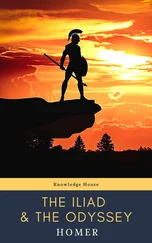But kingdoms ordered like that of France cannot be retained with the same ease. Hence the repeated risings of Spain, Gaul, and Greece against the Romans, resulting from the number of small Princedoms of which these Provinces were made up. For while the memory of these lasted, the Romans could never think their tenure safe. But when that memory was worn out by the authority and long continuance of their rule, they gained a secure hold, and were able afterwards in their contests among themselves, each to carry with him some portion of these Provinces, according as each had acquired influence there; for these, on the extinction of the line of their old Princes, came to recognize no other Lords than the Romans.
Bearing all this in mind, no one need wonder at the ease wherewith Alexander was able to lay a firm hold on Asia, nor that Pyrrhus and many others found difficulty in preserving other acquisitions; since this arose, not from the less or greater merit of the conquerors, but from the different character of the States with which they had to deal.
Chapter 5 How Cities or Provinces Which Before Their Acquisition Have Lived Under Their Own Laws Are To Be Governed
When a newly acquired State has been accustomed, as I have said, to live under its own laws and in freedom, there are three methods whereby it may be held. The first is to destroy it; the second, to go and reside there in person; the third, to suffer it to live on under its own laws, subjecting it to a tribute, and entrusting its government to a few of the inhabitants who will keep the rest your friends. Such a Government, since it is the creature of the new Prince, will see that it cannot stand without his protection and support, and must therefore do all it can to maintain him; and a city accustomed to live in freedom, if it is to be preserved at all, is more easily controlled through its own citizens than in any other way.
We have examples of all these methods in the histories of the Spartans and the Romans. The Spartans held Athens and Thebes by creating oligarchies in these cities, yet lost them in the end. The Romans, to retain Capua, Carthage, and Numantia, destroyed them and never lost them. On the other hand, when they thought to hold Greece as the Spartans had held it, leaving it its freedom and allowing it to be governed by its own laws, they failed, and had to destroy many cities of that Province before they could secure it. For, in truth, there is no sure way of holding other than by destroying, and whoever becomes master of a City accustomed to live in freedom and does not destroy it, may reckon on being destroyed by it. For if it should rebel, it can always screen itself under the name of liberty and its ancient laws, which no length of time, nor any benefits conferred will ever cause it to forget; and do what you will, and take what care you may, unless the inhabitants be scattered and dispersed, this name, and the old order of things, will never cease to be remembered, but will at once be turned against you whenever misfortune overtakes you, as when Pisa rose against the Florentines after a hundred years of servitude.
If, however, the newly acquired City or Province has been accustomed to live under a Prince, and his line is extinguished, it will be impossible for the citizens, used, on the one hand, to obey, and deprived, on the other, of their old ruler, to agree to choose a leader from among themselves; and as they know not how to live as freemen, and are therefore slow to take up arms, a stranger may readily gain them over and attach them to his cause. But in Republics there is a stronger vitality, a fiercer hatred, a keener thirst for revenge. The memory of their former freedom will not let them rest; so that the safest course is either to destroy them, or to go and live in them.
Chapter 6 Of New Princedoms Which a Prince Acquires With His Own Arms and by Merit
Let no man marvel if in what I am about to say concerning Princedoms wholly new, both as regards the Prince and the form of Government, I cite the highest examples. For since men for the most part follow in the footsteps and imitate the actions of others, and yet are unable to adhere exactly to those paths which others have taken, or attain to the virtues of those whom they would resemble, the wise man should always follow the roads that have been trodden by the great, and imitate those who have most excelled, so that if he cannot reach their perfection, he may at least acquire something of its savour. Acting in this like the skilful archer, who seeing that the object he would hit is distant, and knowing the range of his bow, takes aim much above the destined mark; not designing that his arrow should strike so high, but that flying high it may alight at the point intended.
I say, then, that in entirely new Princedoms where the Prince himself is new, the difficulty of maintaining possession varies with the greater or less ability of him who acquires possession. And, because the mere fact of a private person rising to be a Prince presupposes either merit or good fortune, it will be seen that the presence of one or other of these two conditions lessens, to some extent, many difficulties. And yet, he who is less beholden to Fortune has often in the end the better success; and it may be for the advantage of a Prince that, from his having no other territories, he is obliged to reside in person in the State which he has acquired.
Looking first to those who have become Princes by their merit and not by their good fortune, I say that the most excellent among them are Moses, Cyrus, Romulus, Theseus, and the like. And though perhaps I ought not to name Moses, he being merely an instrument for carrying out the Divine commands, he is still to be admired for those qualities which made him worthy to converse with God. But if we consider Cyrus and the others who have acquired or founded kingdoms, they will all be seen to be admirable. And if their actions and the particular institutions of which they were the authors be studied, they will be found not to differ from those of Moses, instructed though he was by so great a teacher. Moreover, on examining their lives and actions, we shall see that they were debtors to Fortune for nothing beyond the opportunity which enabled them to shape things as they pleased, without which the force of their spirit would have been spent in vain; as on the other hand, opportunity would have offered itself in vain, had the capacity for turning it to account been wanting. It was necessary, therefore, that Moses should find the children of Israel in bondage in Egypt, and oppressed by the Egyptians, in order that they might be disposed to follow him, and so escape from their servitude. It was fortunate for Romulus that he found no home in Alba, but was exposed at the time of his birth, to the end that he might become king and founder of the City of Rome. It was necessary that Cyrus should find the Persians discontented with the rule of the Medes, and the Medes enervated and effeminate from a prolonged peace. Nor could Theseus have displayed his great qualities had he not found the Athenians disunited and dispersed. But while it was their opportunities that made these men fortunate, it was their own merit that enabled them to recognize these opportunities and turn them to account, to the glory and prosperity of their country.
They who come to the Princedom, as these did, by virtuous paths, acquire with difficulty, but keep with ease. The difficulties which they have in acquiring arise mainly from the new laws and institutions which they are forced to introduce in founding and securing their government. And let it be noted that there is no more delicate matter to take in hand, nor more dangerous to conduct, nor more doubtful in its success, than to set up as a leader in the introduction of changes. For he who innovates will have for his enemies all those who are well off under the existing order of things, and only lukewarm supporters in those who might be better off under the new. This lukewarm temper arises partly from the fear of adversaries who have the laws on their side, and partly from the incredulity of mankind, who will never admit the merit of anything new, until they have seen it proved by the event. The result, however, is that whenever the enemies of change make an attack, they do so with all the zeal of partisans, while the others defend themselves so feebly as to endanger both themselves and their cause.
Читать дальше












